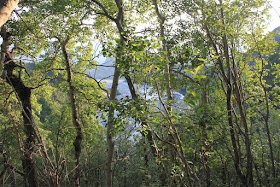I feel that every one must cultivate at least one hobby, one pure pursuit to devote oneself to in our spare time. Be it art, music, science or sport, a hobby can serve as a lifeline to grasp onto in times of crisis.
A hobby is a safe haven to retreat into when life or the world around is in turmoil. A hobby brings the mind to the present. It gives rest to a restless mind by eliminating pointless thoughts. Hobbies not only bring joy but also prevents us from spending our time in empty, material pursuits.
A hobby is a safe haven to retreat into when life or the world around is in turmoil. A hobby brings the mind to the present. It gives rest to a restless mind by eliminating pointless thoughts. Hobbies not only bring joy but also prevents us from spending our time in empty, material pursuits.


















